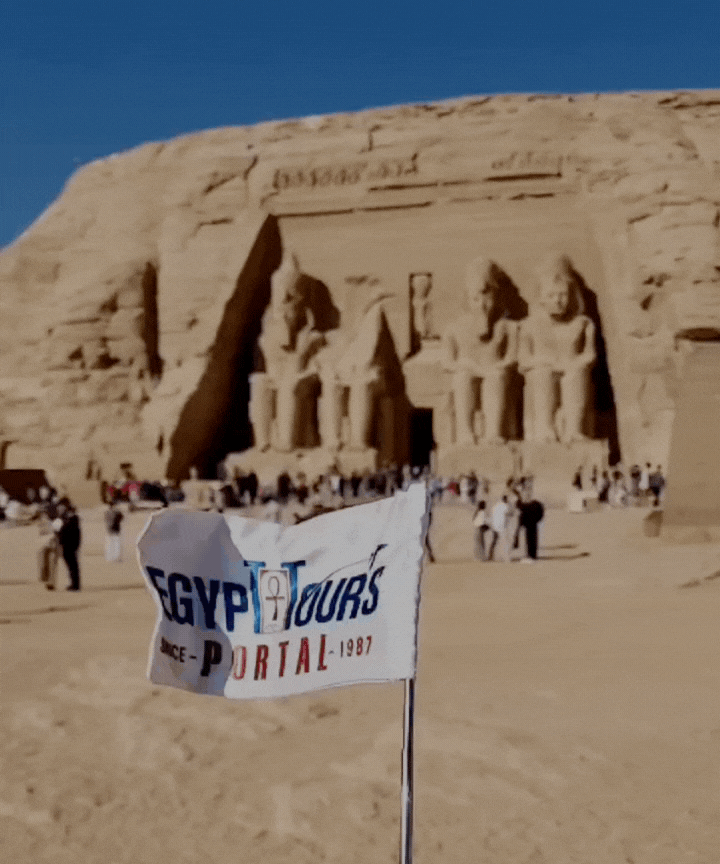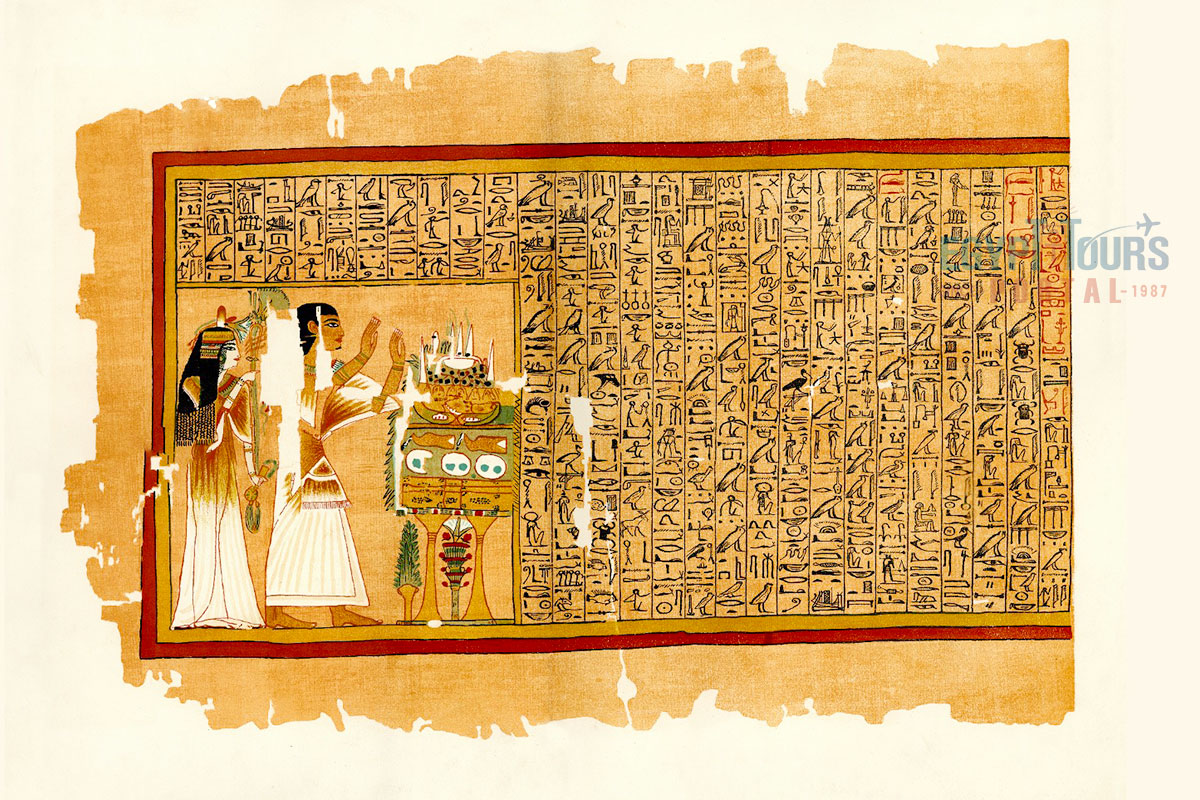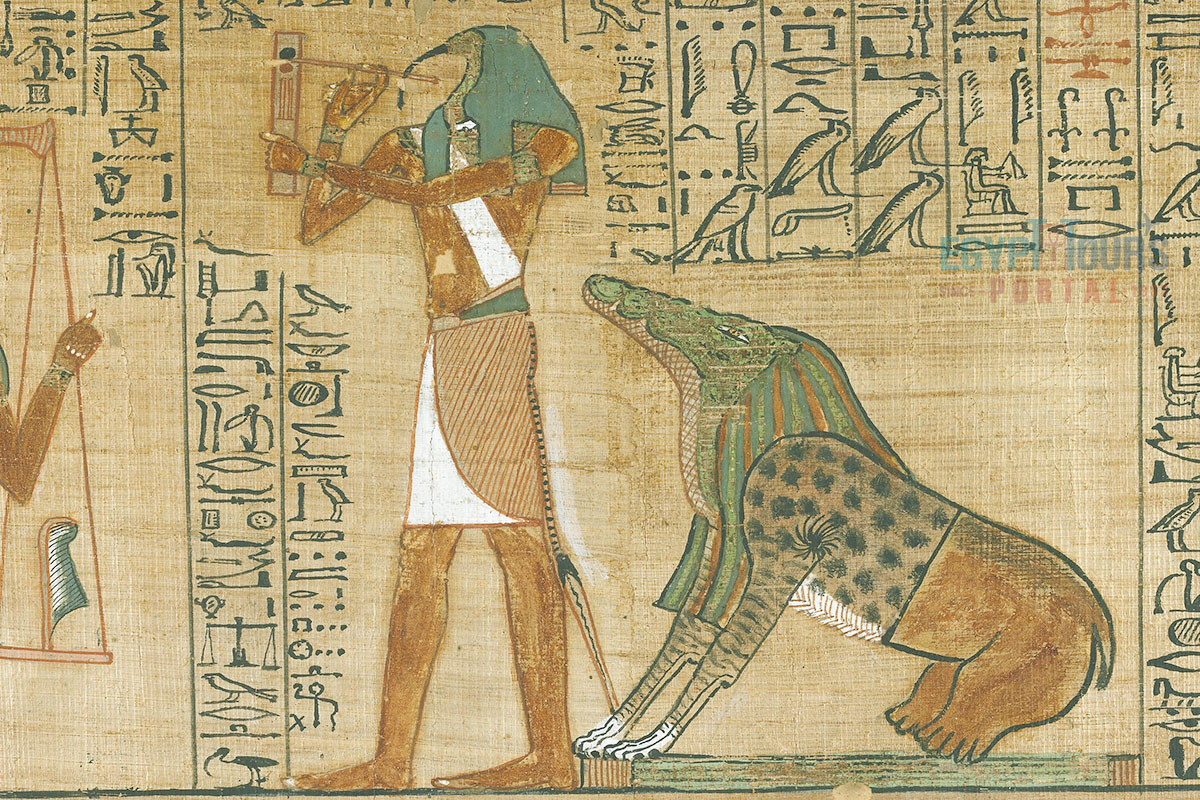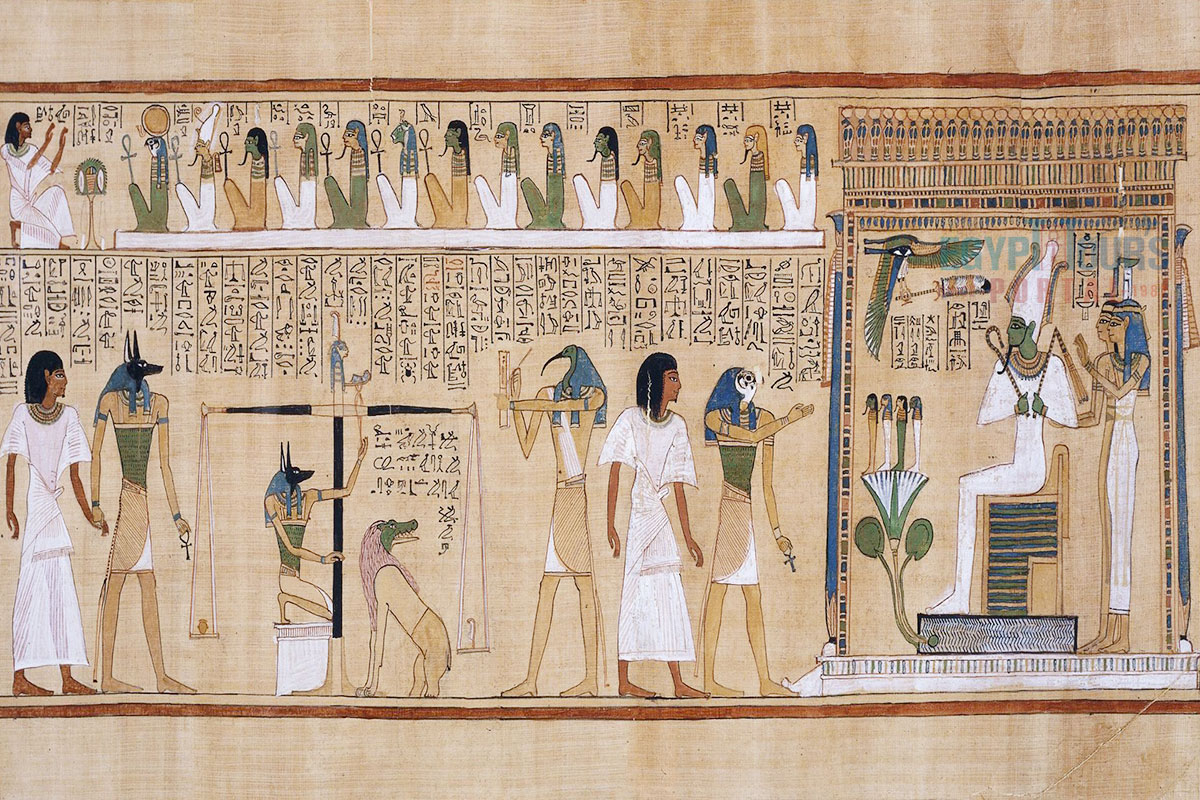The Book of the Dead is a personalized ancient Egyptian funerary text composed of spells and rituals that guided the deceased through the afterlife. Evolving from the Old Kingdom to the Greco-Roman era, it provided protection, moral guidance, and instructions to reach the Field of Reeds, Egypt’s version of paradise, reflecting deep spiritual beliefs in resurrection and eternal life.


The ancient Egyptians were aware of the possibility of the existence of an afterlife, and for that sole purpose, they invested a great deal of their time of imagination into creating the mysterious Book of the Dead. The book is simply a collection of ancient Egyptian funerary texts made up of spells and magical formulas located within tombs to protect and help the deceased during their journey in the afterlife.
They were in common use for 1500 years from Egypt old kingdom (2575-2150 BC) till the Greco-Roman period (332 BC-642 AD). The original title was translated to "Book of Coming Forth by Day" or "Book of Emerging Forth Into the Light" by the famous German Egyptologist Karl Richard Lepsius, who published the first collection of the texts in 1842. The Book of the Dead was never fully codified, and no two copies of the book are the same, as each copy of the book is unique because it was created for each individual who passed on their own life.
IMPORTANT NOTE:
This information does not seek to degrade or insult any religion. All the information is based on historical evidence; any similarities that you may find with your own faith or religion are from the figment of your imagination.

The Book of the Dead goes all the way back to the Old Kingdom, where it was developed from the tradition of funerary manuscripts called the Pyramid Texts around 2400 BCE. These texts were written on the walls of the burial chamber of the pharaohs within their pyramids in an unusual hieroglyphic style.
Their goal was to act as a guidebook to provide all the necessary information and instruct the deceased on how to survive in the afterlife and ascend with the gods. In the middle kingdom of Egypt ( 2030-1650 BC), the Coffin Texts, which were an update of the Pyramid Texts, started to spread as they had a new version of the ancient Egyptian language, new spells, and illustrations for the first time. They were written mostly on coffins but sometimes on tomb walls or papyri.
By the 17th dynasty, the book was highly popular as it no longer included members from the royal family but also courtiers and officials. By the new kingdom of Egypt (1570-1069 BCE), the book had already become a crucial part of their culture, as it could be found in the tomb of anyone who could afford it, as a person who is on the verge of death can hire a scribe and create their book. During the Ptolemaic Dynasty (323-30 BCE), the book continued to be used, and each book had many different copies, forms, and sizes.

The book acted as a ritual formula for performing magical and religious practices. The book holds about 192 spell that serves many purposes, one of the most famous spells in the book was the famous spell 125 "The Weighing of the Heart" which the judgment of the soul happens in the afterlife in the Hall of Truth in front of the King of the underworld "Osiris" where the heart of the deceased is weighed against the feather of Ma'at to decided whether he would enter the fields of Reed or vanish from existence.
Because of Osiris' Popularity and his important role in eternal judgment, more & more people desired the book to win the graces of the ruler of the underworld. The book contains many magical techniques for creating magical amulets. It also contained many definitions and illustrations about the mummification process, the Ka (life-force), Heka (ancient Egyptian magic), transformation, the afterlife, and the judicial process.

The Book of the Dead is an ancient Egyptian funerary text composed of a series of spells, prayers, and incantations designed to assist the deceased in navigating the challenges of the afterlife and achieving eternal life.
These ancient Egyptian texts were not a single unified book but rather a collection of writings that were tailored for individual ancient Egyptian tombs, inscribed on papyrus scrolls or tomb walls. Originating during the New Kingdom period (1550–1070 BCE), the Book of the Dead is a culmination of earlier funerary texts, such as the Pyramid Texts and Coffin Texts.
The Book of the Dead provides guidance on how to overcome the dangers of the afterlife, pass the various tests and trials (like the Weighing of the Heart ceremony), and ultimately be granted access to the afterlife, ruled by the god Osiris. The text includes instructions for moral conduct, protection spells, and magical formulas meant to ensure the deceased’s successful journey to the field of Aaru, the heavenly paradise.

The Book of the Dead, a.k.a “Spells of Coming Forth by Day,” contains a variety of spells designed to protect the deceased in the afterlife and help them navigate the challenges they would face. The ancient Egyptian books hold over 200 spells, but only 192 spells are known. Some of the most important spells include:
Each spell was chosen based on the specific needs of the individual and the challenges they were expected to face in the afterlife.
Explore the amazing religion of the ancient Egyptian civilization
Read More
The book of the dead and the mummification process were very connected as part of the funerary process. The preservation of the body through mummification was critical to the deceased's journey to the afterlife.
Egyptians believed that the soul, or ka, needed a preserved body to return to, even after death. Mummification was accompanied by rituals from the Book of the Dead, especially the Opening of the Mouth Ceremony, in which the mouth of the mummy was symbolically reopened so the deceased could speak and eat in the afterlife.
The Book of the Dead spells and incantations were often buried with the mummy to help it navigate the underworld, overcome obstacles, and reach Aaru, the paradise of Osiris. The papyrus scrolls or tomb inscriptions were a part of the funerary goods placed with the body to ensure the mummy's successful resurrection and eternal life.

The primary purpose of the Book of the Dead was to guide the deceased through the complex journey of the afterlife. It was believed that the dead faced numerous challenges, including judgment by the gods, encounters with demons, and navigating treacherous landscapes. The spells and instructions within the Book of the Dead served to provide protection, knowledge, and assistance at every stage of the journey. Its goals were to:
Egypt has a lot to discover, such as history, civilization, and attractions, which represent the main reasons to visit this holy country, so we have magnificent Egypt vacations and Nile river cruises that can't be missed, which will create a travel experience filled with true wonder and magic.
Private 4 Days Cairo Tour Packages for New Zealander Travelers 4 days Cairo Egypt To...
Tour Location: Cairo – Giza...
5 Days Cairo and Alexandria Tour Package For New Zealander Travelers 5 days Cairo an...
Tour Location: Cairo/Giza/Alexandria...
6 Days Cairo, Luxor & Aswan Tour Package For New Zealander Travelers 6 days Cair...
Tour Location: Cairo/Giza/Aswan/Luxor...
Amazing 7 Days Cairo and Hurghada Holiday for New Zealander Travelers 7 Days Cairo &...
Tour Location: Cairo – Giza – Hurgh...
The Book of the Dead was not written by a single author but was a collection of spells, prayers, and incantations compiled over time by ancient Egyptian priests, scribes, or families of the deceased. The writing of each copy was often personalized for the deceased, with scribes transcribing the spells onto papyrus scrolls or tomb walls, and they would sometimes include specific details about the individual.
The Book of the Dead offers profound insight into ancient Egyptian culture, particularly their beliefs about death, Egyptian deities, mythology, and religious rituals, the afterlife, and the concept of Maat (cosmic order). Ancient Egyptians believed that the soul needed guidance through the challenges of the underworld to achieve eternal life. The text reflects their concern with immortality and the importance of rituals to ensure a successful transition to the afterlife.
The Book of the Dead held great geographical value that references important elements of Egypt’s landscape, such as the Nile River, deserts, and fertile lands, symbolizing the passage between life and death. The text often references specific places in the underworld, such as the Hall of Judgment or the Fields of Reeds, and provides descriptions of these locations.
The afterlife was imagined as a mirror of earthly existence, with geography serving both symbolic and practical functions in their journey through the underworld. The content and quality of the Book of the Dead often varied depending on the social and economic status of the deceased.
The Book of the Dead developed over several centuries; these texts evolved from earlier funerary literature, such as the Pyramid Texts and the Coffin Texts, and were intended to assist the deceased in navigating the afterlife. The earliest sections date to around 1550 BCE, during Egypt's New Kingdom period (1550–1070 BCE).
However, its origins lie in older texts, such as the Pyramid Texts (2400 BCE) and the Coffin Texts (dating to the Middle Kingdom, around 2000 BCE). The text remained in use, evolving and expanding over time, until around the end of the Ptolemaic Period in the 1st century BCE.
The Book of the Dead contained various types of texts designed to guide the deceased through the dangers and challenges of the afterlife. These include:
Over 200 spells were included, ranging from protection spells to those meant to assist in passing trials in the afterlife, such as the Weighing of the Heart before the god Osiris.
Many Prayers and Hymns were addressed to various deities like Ra, Osiris, and Anubis, asking for guidance and protection in the underworld.
The text provided the deceased with instructions on how to behave during key rituals and use the spells effectively.
Maps and Guides that act as illustrations or vignettes were included to visually depict the journey through the afterlife, helping the soul avoid pitfalls.
The book was tailored for each individual, often including personal details and sometimes even specific instructions or formulas unique to the person for whom it was prepared.
The Book of the Dead is crucial to understanding ancient Egyptian religion, culture, society, spiritual practices, artistic & literary traditions, and beliefs about the afterlife. It is one of the most important sources of their funerary practices, and it gives insight into their ideas about immortality, judgment, and the role of the gods in guiding the soul.
The book emphasizes the importance of moral righteousness (as judged in the Weighing of the Heart ceremony), reflecting Egyptian views on ethical living. It was also a key part of Egyptian burial customs, being buried alongside the deceased to offer them the tools and knowledge necessary to reach the afterlife and secure eternal life with the gods.
Several rituals accompanied the use of the Book of the Dead, particularly during the funerary process:
Mummification was mentioned in full detail as the deceased’s body was preserved to ensure the soul could recognize it in the afterlife. During the mummification process, priests would recite specific spells from the Book of the Dead to prepare the deceased for the journey.
Opening of the Mouth Ceremony was performed to restore the senses of the deceased in the afterlife, enabling them to speak, eat, and breathe. The priest would recite spells and use tools on the mummy’s face and mouth.
A scroll containing the spells from the Book of the Dead would be placed within the tomb or even within the wrappings of the mummy. It was seen as a key tool for guiding the deceased through the underworld.
Offerings and Incantations were offered by the family of the deceased in the form of food, drink, and objects to sustain the deceased in the afterlife. Priests would also conduct prayers and invocations to help the soul on its journey.
The Book of the Dead has been translated into numerous modern languages, including English, French, German, and Arabic, and others. Scholarly translations began in the 19th century when ancient Egyptian hieroglyphs were deciphered using the Rosetta Stone.
Translations are available in many languages for academic, historical, and popular consumption. However, it was originally written in Egyptian hieroglyphs and later in the hieratic script (a cursive form of hieroglyphs).
The entire country of Egypt deserve to be explored with its every heavenly detail but there are places that must be seen before any other such as the breathtaking Hurghada's red sea, The wonders of Cairo the pyramids of Giza, the great sphinx, the Egyptian Museum, Khan El Khalili Bazaar, the wonders of Luxor like Valley of the Kings, Karnak & Hatshepsut temple and the wonders of Aswan such as Abu Simbel temples, Philea temple, Unfinished obelisk and The Wonders of Alexandria like Qaitbat Citadel, Pompey's Pillar and Alexandria Library. Read more about the best places to visit in Egypt.
If you want to apply for a Visa On Arrival that lasts for 30 days then you should be one of the eligible countries, have a valid passport with at least 6 months remaining and pay 25$ USD in cash, as for the E-Visa for 30 day you should have a valid passport for at least 8 months, complete the online application, pay the e-visa fee then print the e-visa to later be presented to the airport border guard. You could also be one of the lucky ones who can obtain a free visa for 90 days. Read more about Egypt travel visa.
Egypt has a variety of delicious cuisines but we recommend “Ful & Ta’meya (Fava Beans and Falafel)”, Mulukhiya, “Koshary”, a traditional Egyptian pasta dish, and Kebab & Kofta, the Egyptian traditional meat dish.
The best time to travel to Egypt is during the winter from September to April as the climate becomes a little tropical accompanied by a magical atmosphere of warm weather with a winter breeze. You will be notified in the week of your trip if the Climate is unsafe and if any changes have been made.
You should pack everything you could ever need in a small bag so you could move easily between your destinations.
We have been creating the finest vacations for more than 20 years around the most majestic destinations in Egypt. Our staff consists of the best operators, guides and drivers who dedicate all of their time & effort to make you have the perfect vacation. All of our tours are customized by Travel, Financial & Time consultants to fit your every possible need during your vacation. It doesn't go without saying that your safety and comfort are our main priority and all of our resources will be directed to provide the finest atmosphere until you return home.
You will feel safe in Egypt as the current atmosphere of the country is quite peaceful after the government took powerful measures like restructuring the entire tourist police to include all the important and tourist attractions in Egypt. Read more about is it safe to travel to Egypt.
Wear whatever feels right and comfortable. It is advised to wear something light and comfortable footwear like a closed-toe shoe to sustain the terrain of Egypt. Put on sun block during your time in Egypt in the summer to protect yourself from the sun.
The best activity is by far boarding a Nile Cruise between Luxor and Aswan or Vise Versa. Witness the beauty of Egypt from a hot balloon or a plane and try all the delicious Egyptian cuisines and drinks plus shopping in old Cairo. Explore the allure and wonders of the red sea in the magical city resorts of Egypt like Hurghada and many more by diving and snorkeling in the marine life or Hurghada. Behold the mesmerizing western desert by a safari trip under the heavenly Egyptian skies.
There are a lot of public holidays in Egypt too many to count either religious or nation, the most important festivals are the holy month of Ramadan which ends with Eid Al Fitr, Christmas and new years eve. Read more about festivals & publich holidays in Egypt.
Egypt is considered to be one of the most liberal Islamic countries but it has become a little bit conservative in the last couple of decades so it is advised to avoid showing your chest, shoulders or legs below the knees.
Arabic is the official language and Most Egyptians, who live in the cities, speak or understand English or at least some English words or phrases. Fewer Egyptians can speak French, Italian, Spanish, and German. Professional tour guides, who work in the tourism sector, are equipped to handle visitors who cannot speak Arabic and they will speak enough English and other languages to fulfill the needs of all our clients.
The fastest way is a car, of course, a taxi. If you are in Cairo ride a white taxi to move faster or you could board the fastest way of transportation in Egypt metro if the roads are in rush hour.
The temperature in Egypt ranges from 37c to 14 c. Summer in Egypt is somehow hot but sometimes it becomes cold at night and winter is cool and mild. The average of low temperatures vary from 9.5 °C in the wintertime to 23 °C in the summertime and the average high temperatures vary from 17 °C in the wintertime to 32 °C in the summertime. The temperature is moderate all along the coasts.
It is the home of everything a traveler might be looking for from amazing historical sites dating to more than 4000 years to enchanting city resorts & beaches. You will live the vacation you deserve as Egypt has everything you could possibly imagine.









